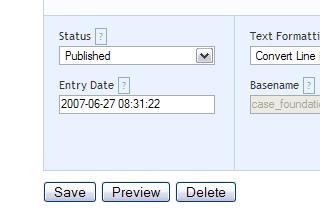We’ve been meeting intensively this week with teens from Prince George’s County, MD. We’ve had 14 hours of class since Tuesday afternoon. All our students happen to be African-American, but they are extremely diverse (as I would have expected). Consider these statements that two of them wrote yesterday:
1. I am a young black African American male I attend — High School although it is not the best school in the world It still ofers some what of a education. Right now at this point in my life I am trying to get back on the right track study more and stop hanging out with the friends I have that I know won’t go anywhere in life based on there action. I am also trying to do better next year than I did this one so when the time comes I can go to college.
2. Hello! My name is Marcus [pseudonym]. I am officially a freshman at — High School … . I love to play sports. I joined this program because I was interested in the summary I was given. In my spare time I like to play video games, read, play sports and watch movies. When I grow up I would hope to be a physician. In conclusion, you can see I am just an average teen that would like to make a difference against modern day issues that face young people such as graduation rates, cleanliness of schools, bullying, education, Racism, and the increasing rate of lunch prices. Well, I’m done now, and remember, 1 person can make a difference.
Marcus’s father is a graduate of University of Maryland. Note his confidence, his good writing, his general optimism and outwardness. His classmate (quoted first) is much less confident and much more challenged. His brother was murdered, and he’s had other trials.
I walked around campus with both of these young men. I’m sure that Marcus was intrigued by the place and felt pretty much at home there. I hope that his classmate, who was much quieter on our tour, could see some realistic connection to the University and didn’t find it overwhelming or alienating.
 When you write a blog post with the software I use (MovableType), and you’re ready to put it on your site, you click “publish.” That little operation is one of the reasons I love to blog. It contrasts so sharply with what “publishing” means in my professional life: looking for appropriate journals, mailing them cover letters and draft articles, waiting months for replies, reading anonymous peer reviews, revising, resubmitting, correcting proofs, waiting. Obviously, peer review provides huge benefits, and I still focus most of my energy on traditional publishing. But it can be a huge relief and a great release to publish by clicking.
When you write a blog post with the software I use (MovableType), and you’re ready to put it on your site, you click “publish.” That little operation is one of the reasons I love to blog. It contrasts so sharply with what “publishing” means in my professional life: looking for appropriate journals, mailing them cover letters and draft articles, waiting months for replies, reading anonymous peer reviews, revising, resubmitting, correcting proofs, waiting. Obviously, peer review provides huge benefits, and I still focus most of my energy on traditional publishing. But it can be a huge relief and a great release to publish by clicking.